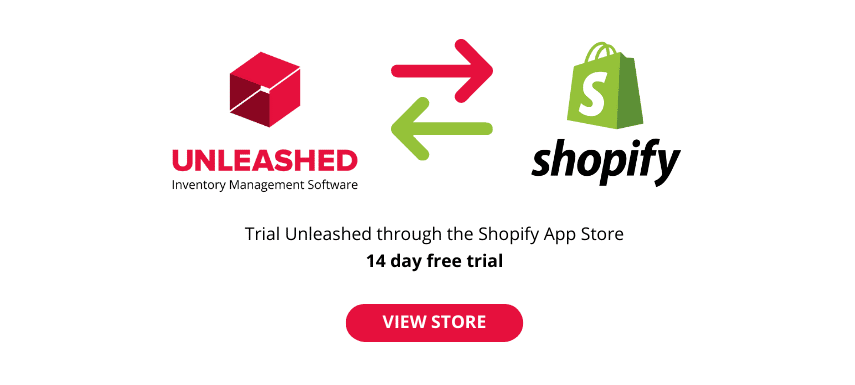
If you’re looking at eCommerce fulfilment services, and confused about comparing apples with apples, let our practical guide help steer you towards the right decision for your business. We’ve covered 11 of the best – so you don’t have to.
What are eCommerce fulfilment services?
Ecommerce fulfilment services are companies that eCommerce businesses use to carry out the order fulfilment portion of the supply chain process. This usually covers tasks from storing stock to shipping, but can also include important processes like order and inventory management (more on this below).
Is there a difference between eCommerce fulfilment and 3PL services?
Ecommerce fulfilment companies are also referred to as 3PLs (third party logistics firms), but some argue that there are differences between the two.
3PLs may, in some cases, be simply focused on the transportation or shipping of items for a business. Fulfilment, on the other hand, is said to be a full-service accompaniment to this, with a dedicated team who provide management of stock, customer support and software integrations. In this way fulfilment encompasses the end-to-end process of inventory storage to delivery and returns – as well as data analysis.
It’s important too to distinguish fulfilment from dropshipping, where a business doesn’t actually own stock. With dropshipping, an order is placed and a business simply relays the information to the manufacturer or supplier, who sends it out on their behalf.
To minimise confusion, when we talk about eCommerce fulfilment providers here, we mean those companies that provide specialty solutions that solely focus on fulfilment. And depending on your needs, they can just help with part of this, or take care of the whole shebang.
- If you’re looking for more expansion on the topic of fulfilment, check out our recent blog Ecommerce Fulfilment: The Ultimate Guide for SMEs
 Ecommerce fulfilment covers those processes that take goods from storage to the end consumer – and sometimes more
Ecommerce fulfilment covers those processes that take goods from storage to the end consumer – and sometimes more
What do ecommerce fulfilment providers do?
Ecommerce fulfilment companies undertake tasks from storing inventory to picking, packing and shipping orders when a customer places an order.
They can also cover tasks like:
- Order management
- Inventory management
- Warehousing
- Distributed inventory (storing inventory in different locations)
- Returns management
- International order fulfilment
- Subscription fulfilment
Using integrated software, some eCommerce fulfilment providers will even provide data services to their customers to assist with decision-making and help improve supply chain and fulfilment processing.
What do fulfilment services cost?
The cost of fulfilment services will ultimately depend on the provider you use and the tasks you’re wanting them to carry out.
There are a variety of pricing methods, with some of the more common ones being:
- By hour
- By pallet
- By unit
- By volume
On top of these there may be charges for storage where required, and services such as shipping and kitting (a technique where multiple products are packaged into a single ‘kit’ that is shipped all together – like a subscription box).
It’s important to always read the small print for pricing, as some will say they offer an all-inclusive order fulfilment for $X amount per item – but that may only be up to a maximum of three items, or a certain weight or size.
How to pick an eCommerce fulfilment service provider
There are a number of factors to consider when choosing an eCommerce fulfilment provider – because while cost may be your first consideration, the right one for your business can depend on quite a few different things.
The 8 questions to ask yourself when considering an eCommerce fulfilment provider
Before reaching out to any eCommerce fulfilment provider, it’s a good idea to take a closer look at your current and future fulfilment needs.
Ask yourself these 8 questions to narrow down what it is you’re actually needing assistance with, allowing you to better understand whether your shortlist of fulfilment companies can help you. This list is not exhaustive – and you’ll no doubt have more nuanced requirements you want to meet – but it lays the groundwork for choosing an eCommerce fulfilment service.
- Am I able to fulfil orders myself – and can I also scale this without logistical difficulties and challenges?
- Do I have enough space for the inventory to do this myself – or should I invest more in this?
- Would faster shipping be appealing to my customers – or is this not so crucial?
- How fast will my business scale – and what is the best fulfilment strategy to meet those needs in the long run?
- Do I need international fulfilment?
- What other services would it make sense for me to outsource?
- Where are most of my customers or buyers located?
- How many parcels am I sending out on a daily basis, and is this likely to increase in the near future?
 One key consideration to make when researching eCommerce fulfilment is whether a provider can scale with your business
One key consideration to make when researching eCommerce fulfilment is whether a provider can scale with your business
What to look for when choosing an eCommerce fulfilment provider
Here’s where we get to comparing apples with apples – because while most will look similar from the outside, often it's the small details that really add up.
Again, these factors lay the groundwork for gaining clarity on your needs before moving forward with your decision – but you may have considerations specific to your business to bear in mind in addition to the ones listed here.
- Cost. The cheapest option is not necessarily the best. You also need to understand the value they can provide your business. Perhaps one is more expensive per item, but provides a higher level of service for you and your customers.
- Proximity to customers. This is a big one. See if they have fulfilment centres located close to your buyers, allowing for faster and more cost-effective shipping.
- Speed. You also want to know how quickly they can pick and pack orders – do they have a cut-off time during the day or are they a 24/7 operation?
- Visibility. Is there visibility of their process, so you can see all the elements of fulfilment – from receiving inventory to storage, preparation of orders, shipping and returns.
- Branding. It might not seem like a big deal at the time, but being able to brand and personalise your packaging should be a key part of your fulfilment process, and not every fulfilment provider allows for this.
- Storage capacity. Understanding the kind of storage capacity you require - and what different fulfilment centres can provide - will allow you to factor those costs into your strategy.
- Scalability. Not every eCommerce fulfilment service has the ability to scale when you need – for peak buying seasons or unexpected rise in popularity of an item, for instance. Ensure agility in their offering.
- Integrations. Software integration is key to support transparency and streamlining within your existing systems.
- Experience in your industry. It’s always helpful to know whether a provider has worked with businesses similar to yours, especially if you have particular needs or special requirements. They may have some great insights into what will work best for what you sell.
- Data. To maximise the success of your eCommerce fulfilment, you need data: can they provide it for you and/or help you to understand it better?
- Customer support. What is their customer support like? Find out if they are available 24/7, if you have a dedicated account manager, or if they have a timeframe in which they respond to emails.
- Supported onboarding. To ensure efficiency and minimal disruption to your current operations, it’s crucial that onboarding is easy and straightforward. Will they have technical support available to assist with this?
 Does the eCommerce fulfilment provider enable you to brand your packaging? This is just one of several factors you’ll need to consider when choosing your provider
Does the eCommerce fulfilment provider enable you to brand your packaging? This is just one of several factors you’ll need to consider when choosing your provider
The 11 best ecommerce fulfilment services
If you’re thinking about finding an eCommerce fulfilment provider to take care of stock, storage and shipping for your business, here’s a list of some of the best.
1. Shopify Fulfilment Network
Launched in 2019, the Shopify Fulfilment Network (SFN) enables its eCommerce customers to add on the service of fulfilment for their online stores, including returns and product storage. It’s well suited to smaller businesses, with stock sent to the nearest fulfilment centre and SFN taking care of the rest.
At the moment it is only available to customers in the US and Canada (but orders can be shipped internationally), and there need to be 10 orders at a minimum per day. Fees are then calculated based on transportation, picking & packing, storage and any admin associated with the stock and/or orders (e.g. kitting).
2. Fulfilment by Amazon
Fulfilment by Amazon (FBA) is similar to SFN, where Amazon sellers can send their product to dedicated fulfilment centres that then look after distribution to customers. It’s probably one of the most popular eCommerce fulfilment service providers, due to its sheer size and the volume it can process.
Being integrated with the online Amazon eCommerce platform also makes it easy for sellers to have greater transparency and visibility over the fulfilment process through an inventory performance dashboard.
FBA manages returned orders, its costs are based on size and weight of products, and it has a global network of fulfilment centres.
 Larger eCommerce fulfilment companies often have numerous centres, which helps to speed up the fulfilment process
Larger eCommerce fulfilment companies often have numerous centres, which helps to speed up the fulfilment process
3. ShipBob
ShipBob is continuing to grow its global availability of fulfilment centres, with central locations across the world able to serve most cities and countries. While there isn’t a ShipBob centre in New Zealand, customers can use the one in Melbourne, and for those in Europe, the fulfilment centre is in Kilkenny, Ireland.
ShipBob can integrate with the Shopify App Store, and works with retail dropshippers, direct-to-customer businesses and B2B, as well as wholesale order fulfilment. They are also able to cater to those requiring omni-fulfilment – which is where customers are purchasing across different marketplaces.
ShipBob has a calculator on their pricing page to get a rough estimate of cost, with standard fees for its typical fulfilment services and then extra for add-on services.
4. Ship Hero
ShipHero has 7 fulfilment centres across the US and Canada, but can offer delivery to some countries outside of North America. ShipHero is also integrated with Shopify and provides a full service for direct-to-customer businesses.
To use ShipHero, customers need to ship a minimum of 500 orders per month, with their fulfilment pricing varying depending on the weight of the packages and how quickly businesses want their orders delivered – ranging between US$5.60 and US$87.78. Storage is charged at 65 cents per cubic foot.
5. Ship Monk
ShipMonk’s tagline is Order Fulfilment for eCommerce Businesses Ready to Scale, making it a good choice for SMEs. It’s another one that has a Shopify integration, and while its fulfilment centre locations aren’t quite worldwide, they are getting there – they have seven in the US, one in Canada, one in Mexico and one in the UK, with a European one opening in 2022.
Providing fulfilment for eCommerce brands, retail, subscription boxes, crowdfunding and more, ShipMonk is able to cater to those businesses with smaller order numbers, offering discounts for larger quantities. Their pricing page allows you to work through the services you require to get an estimate on costs, or you can reach out for a personalised quote.
 While some eCommerce fulfilment providers give a clear indication of their costs online, for others you’ll need to enquire as you research options
While some eCommerce fulfilment providers give a clear indication of their costs online, for others you’ll need to enquire as you research options
6. Rakuten Super Logistics
Rakuten Super Logistics is most suited to enterprise companies located in the US. With 12 strategically-placed fulfilment centres located across the country, their nationwide network can reach 98% of the US in just two days with on-ground shipping. Their website also boasts a 100% next-day ship rate.
Due to their servicing of mainly larger customers, any costs are customised, so you have to get in touch with them to gain an understanding of pricing.
7. Red Stag Fulfilment
Red Stag Fulfilment is well-known as an eCommerce fulfilment provider that deals with complex shipping requirements, or handling heavy, bulky items. They also have the ability to scale with businesses, so can work with the needs of smaller companies (minimum of 200 orders per month) as well as those on the larger side.
They are able to offer same-day delivery, ideal for those with time-sensitive shipping requirements. Their warehousing and fulfilment centres are only based in the US, so while they can offer global shipping, it’s not as much of a priority.
While rates are not available on their website, Red Stag does provide a 30-day free trial so you can see whether it meets your needs and might be a suitable fulfilment solution.
8. FedEx Fulfilment
FedEx Fulfilment is a reliable option for eCommerce businesses that have international shipping requirements, as it is something they handle on a very regular basis – with a substantial delivery network to support order fulfilment.
With a focus on SMEs, order minimums sit around the 400 per month mark, and they also allow for plenty of flexibility to scale for business growth. They have 13 fulfilment centres based in the US, and two international ones, and offer the end-to-end fulfilment services – from inventory storage to picking, packing, shipping and returns.
9. eStore Logistics
eStore Logistics is an Australian-based provider of 3PL warehousing, eCommerce fulfilment, retail store fulfilment, and logistics services. They have six fulfilment centres in Melbourne, and two in Sydney, servicing Australia-wide eCommerce and omni-channel retailers.
eStore Logistics offers the traditional range of eCommerce fulfilment services from warehousing to picking, packing, delivery, cross docking and returns. They can also meet the needs of any ad hoc requirements and work with Amazon marketplace sellers.
 Ultimately, choosing your eCommerce provider will come down to one thing: whether they can optimise your fulfilment to meet your customers’ needs
Ultimately, choosing your eCommerce provider will come down to one thing: whether they can optimise your fulfilment to meet your customers’ needs
10. Huboo
Huboo is a UK-based ecommerce fulfilment service with centres located in Europe. They pride themselves on being easy-to-use for those new to eCommerce, with the ability to help businesses scale and ship worldwide. As a bespoke provider, you pay for a subscription and then prices for fulfilment are based on weight and distribution of products, with standard 24- and 48-hour delivery options for most destinations across the UK.
Huboo boasts a 99.99% accuracy rate, and comes with plenty of integration capabilities, including an in-house development team to help out if required.
11. James and James Ecommerce Fulfilment
James and James is another UK service, but also has fulfilment centres in Europe, North America, Canada and Australia.
It’s an ideal choice for small eCommerce operators, as it caters to businesses taking as few as 150 orders per month. But it also has the ability to scale when required and handle spikes in demand – whether short- or long-term. James and James is backed by award-winning cloud-based software, and while it's perhaps not as large as some of the others on the list above, that may be where its advantage lies.
Prices are not available on their website, but there are three separate fees required: fulfilment services costs, fulfilment centre costs, and order fulfilment costs.
Ecommerce fulfilment services: the outtakes
With a growing need for eCommerce fulfilment to be fast and accurate for the end consumer, and also streamlined for the eCommerce retailer, it’s crucial that more businesses understand the benefits that could come from outsourcing their fulfilment requirements.
That’s not to say that keeping fulfilment in house is less efficient, but for small- to medium-sized businesses, it’s well worth uncovering whether cost savings could be made by engaging the expertise of an eCommerce fulfilment company.

